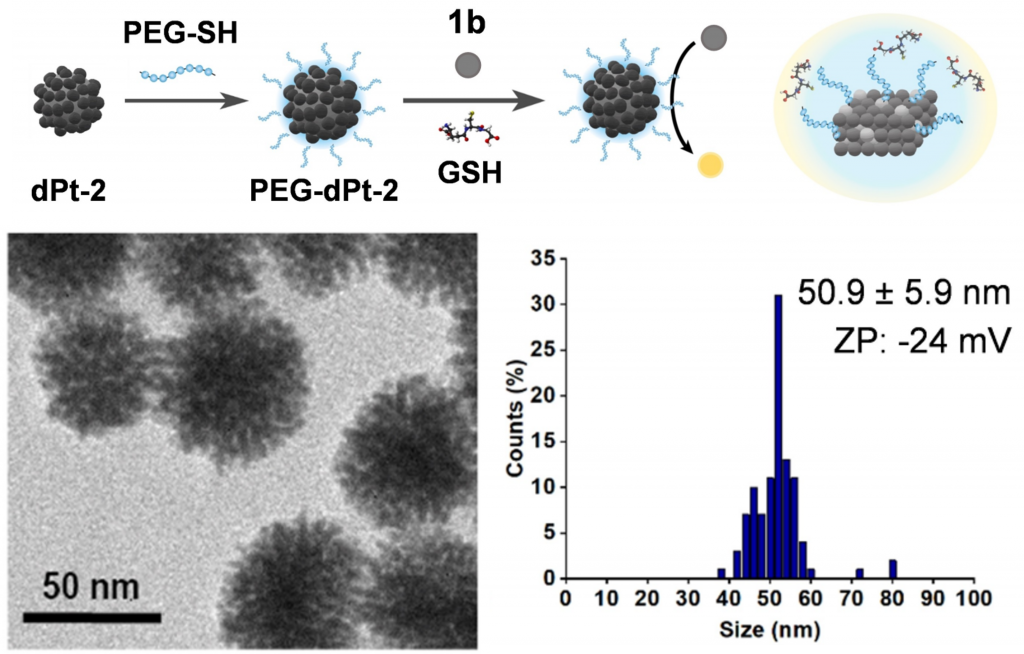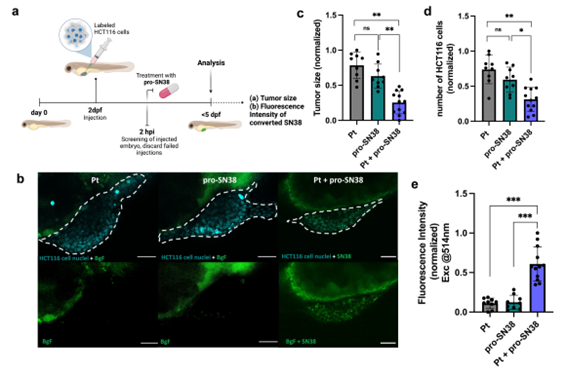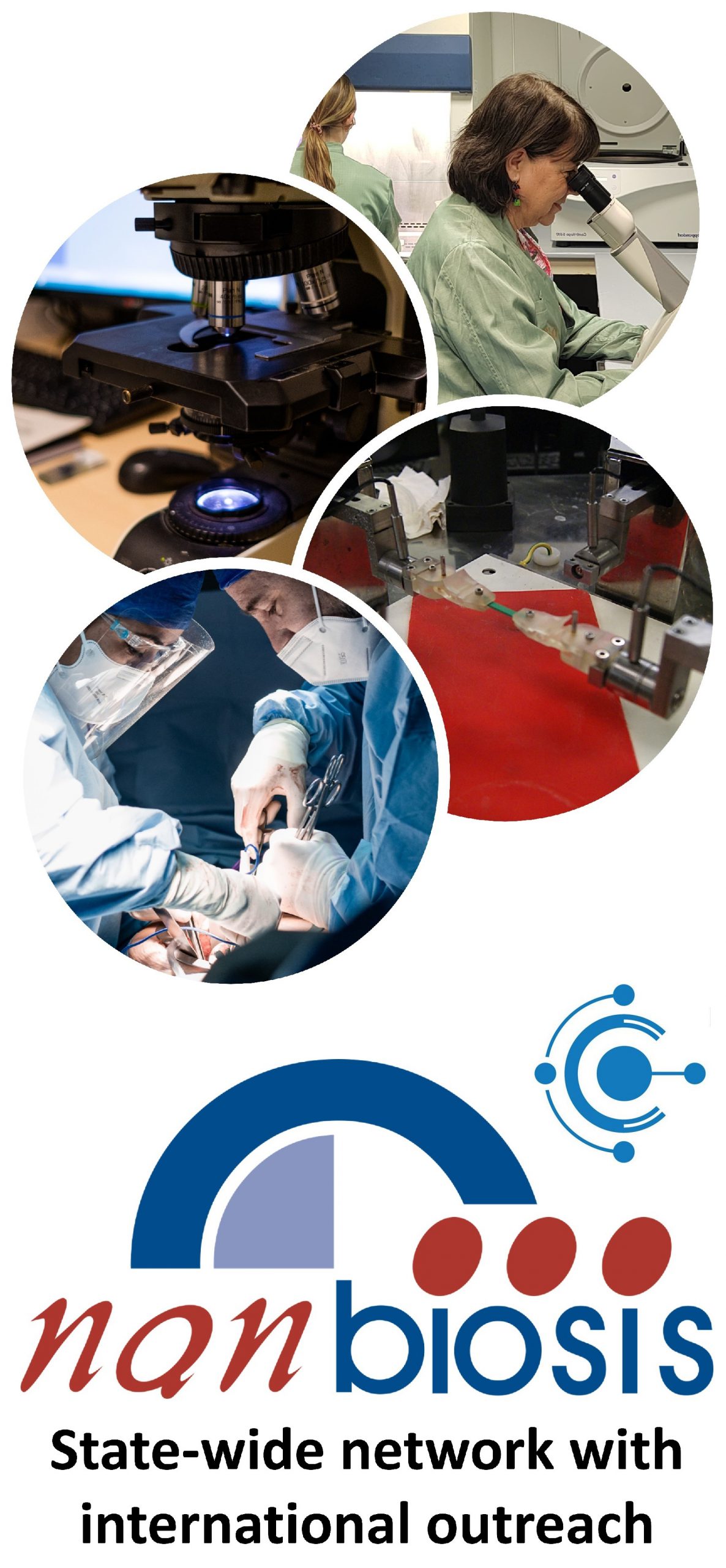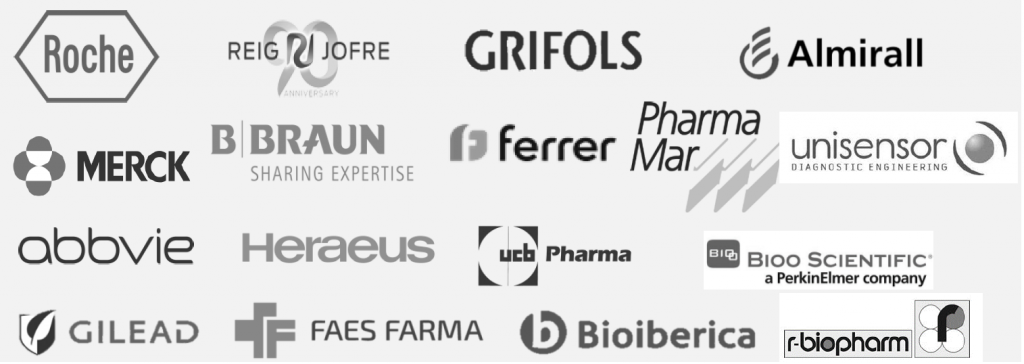
PEGylated dendritic platinum nanoparticles enable targeted drug activation, reducing tumors in vivo. Developed with NANBIOSIS Unit 9, they enhance cancer therapy.
Zaragoza, february 2025. A recent study published in Angewandte Chemie International Edition (see reference at the end of the article) introduces a novel approach in cancer treatment through the development of PEGylated dendritic platinum nanoparticles. These nanoparticles exhibit high biocompatibility and selectively activate anticancer drugs within cancer cells.
The study was co-led by members of the Nanostructured Films and Particles (NFP) group, Dr. Jose I. Garcia-Peiro, Dr. Jose L. Hueso and Prof. Jesus Santamaria (Group Leader) that belong to CIBER-BBN, the Institute of Nanoscience and Materials of Aragon (INMA-CSIC), the Department of Chemical and Environmental Engineering at the University of Zaragoza and the Instituto de Investigacion Sanitaria de Aragon (IISA). This group worked on the synthesis, functionalization and advanced characterization of the dendritic platinum nanoparticles. It was carried out with the support of the Platform of Production of Biomaterials and Nanoparticles of NANBIOSIS, more specifically by the Nanoparticle Synthesis Unit of the CIBER in BioEngineering, Biomaterials & Nanomedicine (Unit 9).

The other leading group in this study is headed by Prof. Asier Unciti-Broceta from the University of Edinburg. His group developed different probes and anticancer drugs with the suitable chemistry to induce a selective uncaging reaction and selectively release the active drug compound in the presence of the dendritic platinum nanoparticles. Dr. M. Carmen Ortega-Liebana, Dr. Catherine Adam as two of the main leading contributors and Dr. Alvaro Lorente-Macias, Dr. Jana Travnickova and Dr. Elisabeth Patton were also participants from Unciti´s group in Edinburg. In addition, Paula Guerrero and Prof. Jose Manuel Garcia-Aznar from the Aragon Institute of Engineering Research (I3A-University of Zaragoza) validated the results with 3D model culture studies.

Interestingly, the study demonstrates the viability and efficacy of the combination of the prodrug pro-SN38 with dendritic platinum heterogeneous nanocatalysts in two-dimensional (2D), three-dimensional (3D) cell cultures, as well as in vivo zebrafish models. This study also paves the way to novel platinum formulations beyond classical platinum-based chemotherapeutics with higher toxicity and higher deactivation in tumor environments.

More information about the publication can be found: https://doi.org/10.1002/anie.202424037
What is NANBIOSIS?
The goal of NANBIOSIS is to provide comprehensive and integrated advanced solutions for companies and research institutions in biomedical applications. All of this is done through a single-entry point, involving the design and production of biomaterials, nanomaterials, and their nanoconjugates. This includes their characterization from physical-chemical, functional, toxicological, and biological perspectives (preclinical validation).
Leading scientists
The main value of NANBIOSIS is our highly qualified and experienced academic scientists, working in public institutions, renowned universities and other research institutes.
Custom solutions
Designed for either scientific collaboration or the private industry, we adapt our services to your needs, filling the gaps and paving the way towards the next breakthrough.

Cutting-Edge facilities
Publicly funded, with the most advanced equipment, offering a wide variety of services from synthesis of nanoparticles and medical devices, including up to preclinical trials.
Standards of quality
Our services have standards of quality required in the pharmaceutical, biotech and medtech sectors, from Good Practices to ISO certifications.
In order to access our Cutting-Edge Biomedical Solutions with priority access, enter our Competitive Call here.
NANBIOSIS has worked with pharmaceutical companies of all sizes in the areas of drug delivery, biomaterials and regenerative medicine. Here are a few of them:









